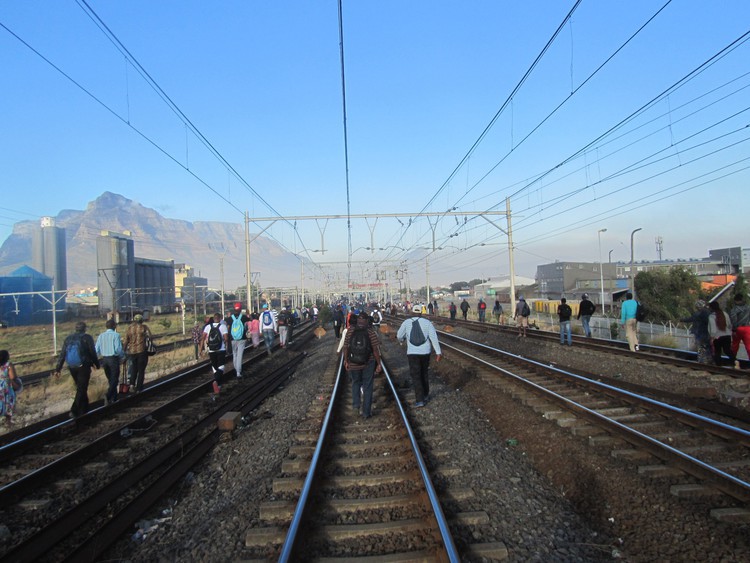
15 August 2024
Progress on the devolution of rail services is too slow, says the City of Cape Town’s Urban Mobility Mayoral Committee Member Rob Quintas. Archive photo: Bernard Chiguvare
The national Department of Transport is dragging its heels on the devolution of rail, says Rob Quintas, head of transport in the City of Cape Town.
He says the steering committee set up by the national Department of Transport to discuss the devolution of rail to municipalities has only met once. The committee includes representatives of municipalities and provincial and national transport departments.
Quintas said the City was not satisfied with progress to date and “the lack of urgency” that the national department of transport had demonstrated. “We have never been invited to a meeting other than the initial inception meeting,” he said.
Quintas said the City was still waiting for the department’s draft National Devolution Strategy.
Spokesperson for the national department of transport, Collen Msibi, told GroundUp the draft National Devolution Strategy would be developed for public participation and “all stakeholders including the City of Cape Town be given adequate opportunity to make comments. The strategy would provide guidelines and procedures for municipalities and would ensure that there was a mechanism for financial sustainability.
“Key considerations will be taken into account to avoid mushrooming of state-owned enterprises in the rail space as a result of the devolution process,” said Msibi.
Cape Town mayor Geordin Hill-Lewis has called on President Cyril Ramaphosa to announce a clear deadline for the National Devolution Strategy report.
The National Rail Policy White Paper in 2022 first promised the delivery of a Devolution Strategy by 2023. Then in Parliament on 5 September 2023, the President promised the strategy would be concluded and approved by 2024.
Functional rail will save lower income families in Cape Town R932-million per year and sustain 51,000 jobs in the metro, according to a City of Cape Town Rail Feasibility Study.
Initially, the City said the national government’s failure to devolve rail might lead to a formal intergovernmental dispute. But Quintas this week said, “If we see commitment to urgency and working together, then no dispute will be necessary.”